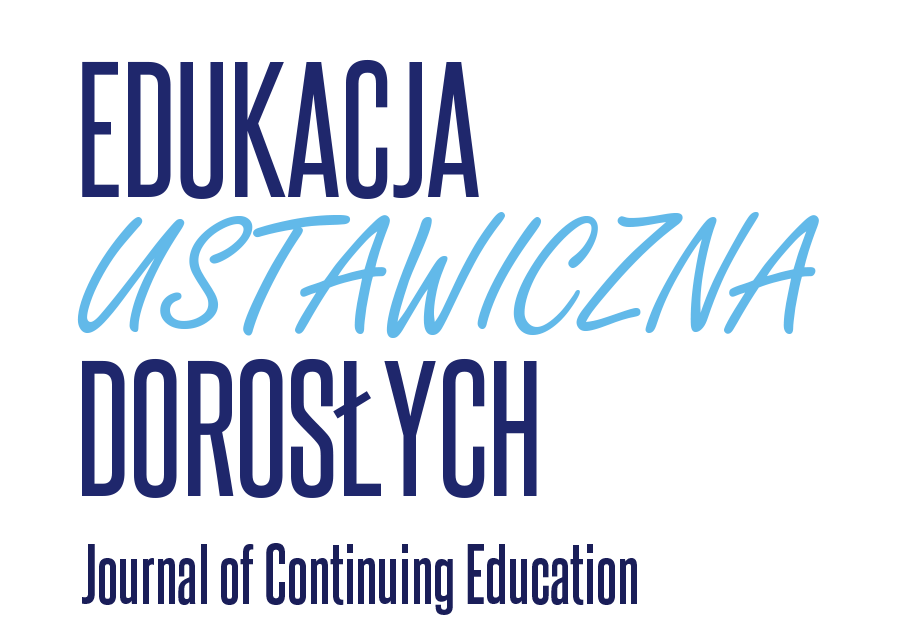Kompetencje nauczycieli i wykładowców w procesie edukacji zdalnej – perspektywa studentów ![]()
DOI: 10.34866/8ns5-tz47
Maria Gagacka ORCID: 0000-0003-1274-4886
Elżbieta Sałata ORCID: 0000-0001-5662-0821
The competences of teachers and lecturers in the process of remote education – students’ perspective
Słowa kluczowe: kompetencje, edukacja zdalna, oczekiwania studentów, formy i metody kształcenia.
Key words: competences, remote education, student expectations, forms and methods of education.
Streszczenie: W ostatnich miesiącach zarówno szkoły, jak i uczelnie weszły w okres znaczących zmian i przeobrażeń związanych z sytuacją pandemiczną na świecie. Obecna sytuacja pandemiczna wymusiła również zmianę w funkcjonowaniu placówek oświatowych. E-learning, który do niedawna był uzupełniającą formą edukacji, stał się podstawową formą stosowaną na każdym poziomie edukacji: od szkoły podstawowej po nauczanie na studiach wyższych. W nowych warunkach jesteśmy zmuszeni do korzystania z nowych technologii, niezależnie od tego, jak byliśmy przygotowani do tych zadań. Obecnie pracujemy w sytuacji dużego stresu związanego z zagrożeniami pandemicznymi. Kontakty nauczycieli i wykładowców z uczniami lub studentami są bardzo utrudnione w czasie pandemii. Nauczyciele i uczniowie zostali nagle zmuszeni do korzystania z technologii informacyjnych i komunikacyjnych. I w tych trudnych warunkach rola nauczycieli zmieniła się z tradycyjnej na nową: konsultanta lub mentora. Celem prezentowanych badań jest próba określenia poziomu przygotowania nauczycieli do nowej sytuacji. Podstawą empiryczną prezentowanych analiz są badania empiryczne przeprowadzone na przełomie maja i czerwca na próbie studentów. Przedmiotem analiz są opinie studentów na temat różnych aspektów realizacji kształcenia na odległość oraz kompetencji wykładowców w nowej rzeczywistości. Przedstawione wyniki pozwolą na doskonalenie metod nauczania na odległość oraz rozwój kompetencji nauczycieli akademickich.
Abstract: In recent months, both schools and universities have entered a period of significant changes and transformations related to the pandemic situation in the world. The current pandemic situation has forced a change in the functioning of educational institutions as well. E-learning, which until recently was used as a supplementary form of education, has become the basic form used at every level of education: from primary school to teaching in higher education. In the new conditions, we are forced to use new technologies, regardless of how we have been prepared for these tasks. We are currently working in a situation of high stress related to pandemic threats. Contacts between teachers and lecturers with pupils or students are very difficult in the time of the pandemic. Teachers and students were suddenly forced to use information and communication technologies. And in these difficult conditions the role of teachers changed from traditional to a new one: consultant or mentor. The aim of the presented study is to try to determine the level of teachers’ preparation for the new situation. The empirical basis of the presented analyzes are empirical studies conducted at the turn of May and June on a sample of students. The subject of the analyzes are students’ opinions on various aspects of the implementation of distance education and the competences of lecturers in the new reality. The presented results will allow for the improvement of distance learning methods and the development of competences of academic teachers.


